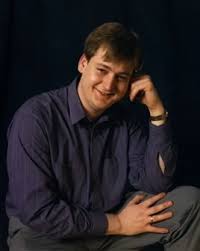Brighton Unitarian Church, 20 July 2014
If there was an air of the Pump Room in Bath on this very sultry afternoon please take the comment as a compliment. The string quartet drawn from the Brighton Philharmonic Orchestra opened with a delightful arrangement of Schubert’s Marche Militaire promptly followed by an even more winning rendition of Tchaikovsky’s Andante Cantabile from the first string quartet. If not quite as familiar to Classic FM listeners as the slow movement from the Borodin quartet, it had a richness of expression without any undue emotion which was totally convincing.
The afternoon concluded with Mozart’s Oboe Quartet, where the strings were joined by Alun Darbyshire who proved that he was more than a match for Mozart’s fearsome writing. A triumph all round.
Between these we heard Peter Copley’s String Quartet No2, which had been composed for the Stanford Quartet in 2009. There were hints both in the introduction and from the composer that we might find this challenging. It is certainly a very serious composition, but Peter Copley was quite right to suggest that even difficult music can be fun. This certainly is, and for all the complexity of the writing, it is easy to assimilate on a first hearing – dare I say that is not always the case with new music!
The opening Molto vivace has a strong sense of purpose and direction, its regular triple stabbing chords punctuating the musical line and marking out the structure for our journey. At other times the line dances and leads like the Pied Piper. The Adagio is a genuine cantabile, the melody moving easily from one instrument to another. The movement has warmth and an integrity which is close to its Haydnesque roots. Following the idea of having fun, the scherzo starts as if it is going to be a folk song but this rapidly fragments, only to reappear and reform itself as the music progresses. There is a quintessential Englishness to this movement without any hint of pastiche or reference to twentieth century masters. The final Presto is a hell-for-leather skittering which can only bring a smile to any listener, its furious pace easily within the technical grasp of the quartet. The crunch with any new work is the question – would I like to hear this again? Yes, very much so, and it deserves recording as soon as somebody can be persuaded to do so. Let us hope there will be occasions to hear other works by Peter Copley.

